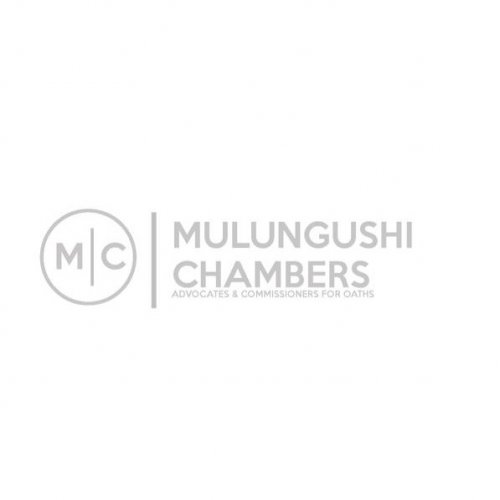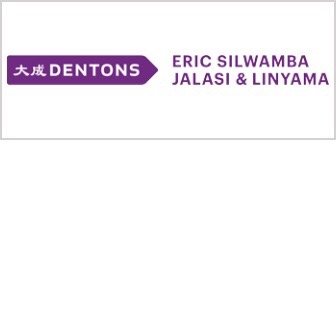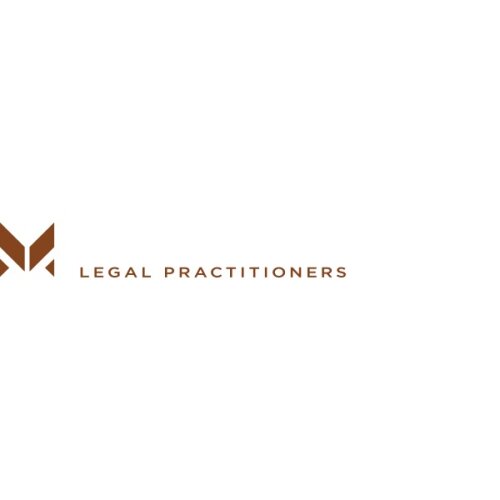Best International Trade Law Lawyers in Lusaka
Share your needs with us, get contacted by law firms.
Free. Takes 2 min.
List of the best lawyers in Lusaka, Zambia
About International Trade Law in Lusaka, Zambia
International Trade Law in Lusaka, Zambia, involves the regulations and legal standards governing the export and import of goods and services across international borders. This legal field ensures compliance with regional and global trade agreements and manages the legalities associated with cross-border transactions. In Lusaka, the capital city and economic hub of Zambia, International Trade Law is particularly significant given the city’s centrality to trade activities within the Southern African region.
Why You May Need a Lawyer
There are several common situations where individuals or businesses may require legal help related to International Trade Law in Lusaka:
- Establishing and managing international trade agreements or partnerships.
- Complying with import/export restrictions and tariffs.
- Navigating disputes over trade agreements or contracts.
- Understanding and applying trade laws specific to certain goods, like agricultural products or minerals.
- Compliance with anti-dumping and countervailing duties regulations.
- Addressing issues related to customs and regulations.
- Seeking guidance on intellectual property rights in trade.
Local Laws Overview
Several key aspects of local laws are particularly relevant to International Trade Law in Lusaka:
- Zambia Revenue Authority (ZRA): Handles customs and duty assessments, and compliance is critical for lawful trading.
- Competition and Consumer Protection Commission (CCPC): Ensures competitive market practices and consumer protection, affecting trade activities.
- Export Development Programmes: Initiatives supporting export trade, requiring adherence to specific guidelines and laws.
- Regional Trade Bodies: Zambia is a member of several regional trade organizations such as SADC and COMESA, whose regulations impact trade activities.
- Intellectual Property Laws: Protects innovations crucial for export products, ensuring proper registration and enforcement.
Frequently Asked Questions
What is the role of a trade lawyer in Zambia?
A trade lawyer assists with understanding and applying Zambian trade laws, negotiating trade agreements, resolving disputes, and ensuring compliance with international trading standards.
Which government body oversees international trade in Zambia?
The Zambia Revenue Authority (ZRA) is responsible for overseeing customs operations, while trade policies are largely governed by the Ministry of Commerce, Trade, and Industry.
Do I need a lawyer to start exporting goods from Zambia?
While not mandatory, a lawyer can provide invaluable assistance in navigating legal requirements, ensuring compliance with export regulations, and addressing any legal issues that arise.
What are the common export and import duties in Zambia?
Duties vary depending on the nature of the goods, with specific rates set by the ZRA. Legal advice can ensure accurate classification and duty payments.
How does Zambia's membership in regional trade bodies affect my business?
Membership in bodies like SADC and COMESA can offer benefits such as reduced tariffs and additional trade opportunities, but may also entail compliance with additional regulations.
What should be considered when drafting an international trade contract?
Key considerations include scope of goods/services, delivery terms, payment conditions, dispute resolution mechanisms, and compliance with local and international laws.
Are there any incentives for foreign traders in Zambia?
Yes, foreign traders may benefit from various incentives such as tax rebates, allowances for certain sectors, and participation in export promotion programs.
How can trade disputes be resolved in Zambia?
Trade disputes can be resolved through negotiation, mediation, arbitration, or litigation, depending on the contract terms and involved parties' preferences.
Can a Zambian trade lawyer help with issues in other countries?
A Zambian trade lawyer may assist with cross-border trade issues, often collaborating with foreign counsel for comprehensive legal solutions.
What are anti-dumping laws and do they apply in Zambia?
Anti-dumping laws prevent products from being imported at unfairly low prices, harming local industries. Zambia applies such laws in alignment with international standards.
Additional Resources
Here are some recommended resources and organizations that can provide guidance on International Trade Law in Zambia:
- Zambia Revenue Authority (ZRA)
- Ministry of Commerce, Trade and Industry
- Competition and Consumer Protection Commission (CCPC)
- Zambia Development Agency (ZDA)
- Common Market for Eastern and Southern Africa (COMESA)
- Southern African Development Community (SADC)
- Exporters' Guide to Zambia (available through governmental publications)
Next Steps
If you need legal assistance in International Trade Law, consider the following steps:
- Identify your specific legal needs related to international trade.
- Research and contact qualified trade lawyers in Lusaka, who have expertise in international trade matters.
- Prepare relevant documents, such as contracts and correspondence, to discuss with your lawyer.
- Consider visiting legal firms or trade associations for initial consultations and advice.
- Utilize available resources, workshops, and seminars on trade law to remain informed about laws affecting your business.
With the right legal guidance and resources, navigating International Trade Law in Lusaka, Zambia, can become more manageable and efficient.
Lawzana helps you find the best lawyers and law firms in Lusaka through a curated and pre-screened list of qualified legal professionals. Our platform offers rankings and detailed profiles of attorneys and law firms, allowing you to compare based on practice areas, including International Trade Law, experience, and client feedback.
Each profile includes a description of the firm's areas of practice, client reviews, team members and partners, year of establishment, spoken languages, office locations, contact information, social media presence, and any published articles or resources. Most firms on our platform speak English and are experienced in both local and international legal matters.
Get a quote from top-rated law firms in Lusaka, Zambia — quickly, securely, and without unnecessary hassle.
Disclaimer:
The information provided on this page is for general informational purposes only and does not constitute legal advice. While we strive to ensure the accuracy and relevance of the content, legal information may change over time, and interpretations of the law can vary. You should always consult with a qualified legal professional for advice specific to your situation.
We disclaim all liability for actions taken or not taken based on the content of this page. If you believe any information is incorrect or outdated, please contact us, and we will review and update it where appropriate.

















